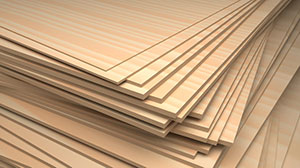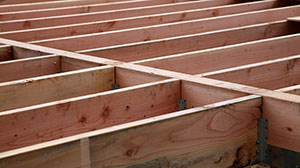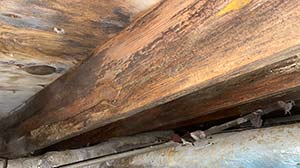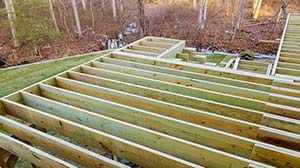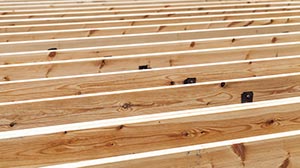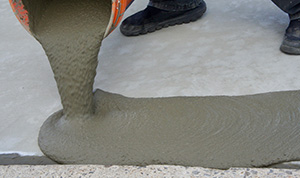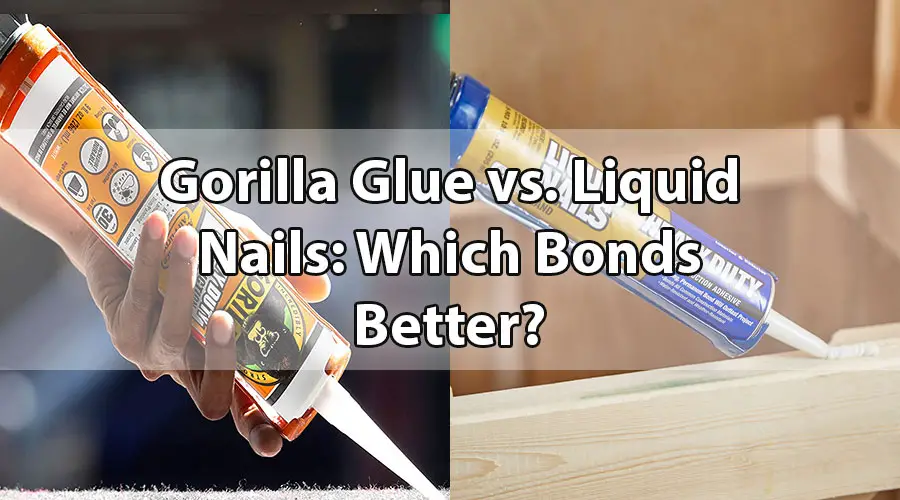
Adhesive shopping can be a challenge. Gorilla Glue and Liquid Nails are some of the most recommended options, but still, you want to make sure you get the best adhesive that best suits your project. So Gorilla Glue vs. Liquid Nails: which bonds better?
Gorilla Glue construction adhesive bonds wood better than Liquid Nails HD construction adhesive. But a newer variant of Liquid Nails, the Fuze It Max, had better scores in a peel strength test where Gorilla Glue was part of the sample. Gorilla Glue and Liquid Nails are similar in some ways, as they each have options in the same category.
Both these types of glue have different varieties. There are varieties made for outdoor construction and others suited for indoor projects.
In this article, we’ll find out the difference between Gorilla Glue and Liquid Nails. We’ll be looking at how some similar variations perform under the same circumstances and which one suits your construction or DIY project.
Gorilla Glue vs. Liquid Nails Quick Comparison
| Gorilla Glue | Liquid Nails | |
|---|---|---|
| Variety | Gorilla Glue has more variety for a wide range of personal and construction projects. | Liquid Nails has more options for interior home projects. |
| Surface Type Compatibility | Gorilla Glue shows less bonding power on some surfaces, although it works on dissimilar objects. | Some newer variants of Liquid Nails performed better than Gorilla Glue on dissimilar objects. |
| Curing Time | Gorilla glue fast curing takes 30 minutes to an hour. | The average drying time for Liquid Nails starts at 15 minutes. |
| Peel Strength test | Gorilla Glue withstood more pressure than Liquid Nails HD | Liquid Nails HD Adhesive withstood less pressure. |
| Longevity | Gorilla Glue can stay unopened for two years | Liquid Nails can stay unopened for two years |
What Surfaces Are You Bonding?
Each of these brands has products made for specific uses. Before you settle on one, consider the nature of your project. Construction projects will have you bonding everything ranging from concrete to metals and floors to wood.
Gorilla Glue prides itself on its ability to bond different materials. That means if you are looking forward to bonding wood to metal or concrete on concrete, you need Gorilla Glue construction adhesive.
Liquid Nails has construction adhesive specifically strengthened to bond two dissimilar objects. The new release, Liquid Nails Fuze it Max showed impressive bonding strength on wood, wood-to-metal, and concrete.
If your project mainly used wood, focus on Gorilla Glue. However, if you’re looking to bond different kinds of material — say wood on metal or wood-to-concrete — Liquid Nails should be on your checklist.
Time Taken To Cure
Unlike other construction works that require weeks of curing before you can proceed to the next stage, fast drying time is a plus for any glue brand. It would help if you used an adhesive that cures fast on initial application and takes minimal time to cure well enough for long-term bonding.
Gorilla glue has a range of products that dry in as little as 5 minutes. Gorilla Epoxy Glue is recommended for interior tasks that need more bond strength. The Epoxy is a 2x formula meaning it combines epoxy resin and hardener. This is one of the strongest combinations you can find in an adhesive.
However, when you rank a polyurethane variant of Gorilla Glue against a similar Liquid Nails variant, Liquid Nails cures in less time. Liquid Nails Fuze it Max hardens in 15 minutes compared to 30 minutes for Gorilla Glue. You’d need about 24 hours to get a solid hold for both adhesives, even on materials such as concrete, as this video illustrates.
To get the best result for Gorilla Glue and Liquid Nails on a similar surface like concrete-on-concrete, bond the surfaces to allow air and moisture to cure the glue. Note that if you can’t get Liquid Nails Fuze It Max, get Liquid Nails LN-700.
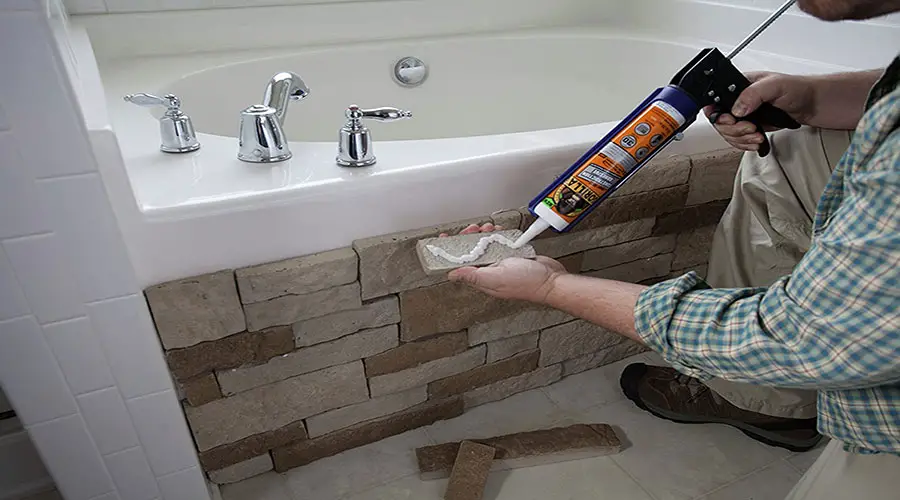
Bond Strength
- The lap shear test measures an adhesive’s ability to withstand stress when force from above causes the object to detach from the other. Say you glued a concrete block to a board. A strong glue would require more force to slide down the board after the glue has cured.
- The peel strength is used as the most valid indicator of glue strength. It’s the load per unit of width needed to separate two bonded materials.
We measure the glue bond strength using two metrics.
Different variations of Liquid Nails will give you varying shear test and peel strength results. In an experiment to check wood-on-wood sheer strength, Liquid Nails HD had a 336 lbs shear strength. Liquid Nails Fuze It lived up to its 3x more strength promise, showing 1178 lbs sheer strength.
In a separate experiment that pitted Gorilla Glue against Liquid Nails, Gorilla Glue performed better than Liquid Nails HD. Liquid Nails HD was able to withstand 441lb, while Gorilla Glue construction adhesive held 846 lb.
Using these results, we can deduce Gorilla Glue bonds better than Liquid Nails Heavy Duty. However, Liquid Nails Fuze performs better than both.
While selecting the strongest adhesive is a personal call, you can always check tests that determine the bond strength. This test featured Liquid Nails Fuze It, Liquid Nails Extreme Heavy Duty, Liquid Nails Ultra Quik Grip, Liquid Nails Heavy Duty, and Gorilla Glue Heavy Duty. It measured the weight held in wood-to-wood bond and PVC-to-wood bond.
These were the results:
| Adhesive | Wood-to-Wood Bond (lbs) | PVC-to-Wood Bond (lbs) |
|---|---|---|
| Liquid Nails Fuze It | 100 | 84 |
| Liquid Nails Extreme Heavy Duty | 95 | 57 |
| Liquid Nails Ultra Quik Grip | 72 | 78 |
| Liquid Nails Heavy Duty | 87 | 57 |
| Gorilla Glue Heavy Duty. | 80 | 41 |
These results paint a different picture. Three variants of Liquid Nails outperformed Gorilla Glue in wood-to-wood and wood-to-PVC bond strength. Only the Ultra Quik Grip variant registered a lower score.
Are There Better Alternatives for Pvc-to-Wood Bonding?
Most Gorilla Glue variants are not the best option for PVC-to-wood bonding.
You can use Gorilla Glue as a temporary solution if you don’t intend on placing heavy loads on it.
However, if you are looking for a long-term solution, you can go for construction adhesive and try these two hacks:
- Sand down the PVC with fine-grit sandpaper
- Increase the surface area of the PVC
Sanding down the PVC creates a smoother surface that will almost match the wood’s surface and give you better results. Given the nature and shapes of most PVCs, increases the surface area might be an uphill task. After all, PVCs in most projects are primarily pipes.
Your best bet in such a predicament is to get a stronger adhesive. Gorilla glue has a 2-part adhesive that would be perfect for PVC-to-wood bonding.
For indoor projects where you’re using PVC-on-wood, Gorilla Glue epoxy outperforms Liquid Nails. It would have to be small tasks.
What is the Strongest Construction Adhesive: Gorilla Glue or Liquid Nails?
Gorilla Glue and Liquid Nails can both be the strongest possible adhesive depending on the surfaces you will be using it on.
You’ll need the strongest glue you can get whether you work construction or you’re looking to fix a few things around the house. Gorilla Glue and Liquid Nails have specialty types of glue that claim to handle all kinds of surfaces.
These are the surfaces on which you can use adhesives.
- Plastic
- Ceramic tiles
- Glass
Gorilla Glue vs. Liquid Nails: Which Bonds Plastic Better?
Gorilla Glue has a range of products that will work on plastic. However, they come with a warning. It will not work with polypropylene (PP) or polyethylene (PE) plastics. PP plastics are plastics that can be found in food packaging. On the other hand, PE plastics are used in grocery bags and plastic wrap or some garbage bins.
Since most of Gorilla Glue’s variants are polyurethane, they will not work with these plastics. If you insist on using Gorilla Glue to fix your plastics, Gorilla Glue epoxy is a great choice. It’s suitable for applications where there’s minimal contact with water.
Liquid Nails has a specific product that guarantees excellent results on plastic. It’s waterproof. You can use it to bond plastics that come in close contact with water. The LN-207 adhesive is resistant to moisture, and it has fast bonding.
The Liquid Nails comes in a bigger package. Still, epoxy adhesives outperform polyurethane adhesives on bond strength.
If you’re looking for a stronger glue for your plastics, Gorilla Glue Epoxy provides more value for your money and superior bonding strength.
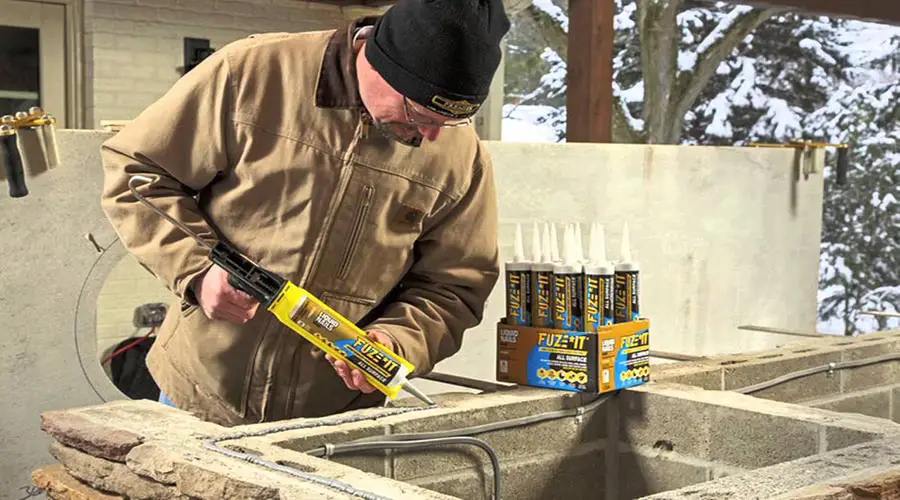
Gorilla Glue vs. Liquid Nails: Which Bonds Tiles Better?
Tiles are primarily installed in areas that have heavy foot traffic or high moisture content. In most cases, the tiles will break and need repair. Technically, you CAN use glue to fix tiles.
According to this Gorilla Glue guide, you can find a range of adhesives that can repair tiles. However, you would have to use the glue in areas with minimal foot traffic, and the tiles don’t get too much external pressure. Say a kitchen tile has come loose on the wall. You can use Gorilla Glue to fix the broken piece back.
You’ll have to count on the support of the piece below the broken tile, and you will need to hold it in place for up to 24 hours to cure fully. The best options in this scenario would be the Gorilla Glue Epoxy and the Gorilla Glue Heavy Duty construction adhesive. The Epoxy is water-resistant, while the Heavy Duty construction adhesive is waterproof and cleared for indoor works.
Liquid Nails work on tiles. However, it’s not the product you want to use for a big project. Liquid Nails has more range in construction adhesives — right around the interior projects alley. So, a broken tile would be the ideal project. The main disadvantages of using Liquid are:
- It’s expensive to use on a large scale.
- The cured adhesive will crack again in areas with heavy foot traffic
- Since it’s not porous, it would take too much time to cure properly.
If you want to fix a few tiles on a kitchen wall or in a room with minimal foot traffic, go for Liquid Nails Fuze It Adhesive. The Fuze It is a recent release with improvements. It works best for outdoor projects and should give you a powerful bond when using it in tiling.
But given the price, only stick to small projects.
In the tile category, Epoxy does better than construction adhesive. So Gorilla Glue Epoxy bonds tiles better than Liquid Nails Fuze it Construction Adhesive.
Gorilla Glue vs. Liquid Nails: Which Bonds Glass Better?
Glass valuables tend to break around the house. At times, it’s a valuable piece that you wouldn’t toss out for chipping just a bit.
Gorilla Glue has super glue and epoxy glue that might work with glass on glass. However, you’d have to be attaching a piece that does get moved much. It would need to be sheltered from extreme weather changes to reduce the likelihood of cracking.
On the other hand, Liquid Nails saw its inefficiencies in previous variations of its adhesives and made Fuze It. Fuze It is said to work on glass too. Although polyurethane adhesives don’t do well submerged in water, you can apply Liquid Nails Fuze It in places where the bonded material can contact water.
Does this make Liquid Nails a suitable adhesive for glass? You can use it to install glass on walls or reattach big broken pieces on glass. The best part is, you can sand or wipe the excess after it cures and paint over the surface, giving your glass a new outlook.
You might get a stronger bond with Gorilla Glue Epoxy, but Liquid Nails Fuze It bonds bigger bits of glass. Liquid Nails bond glass better than Gorilla Glue.
Final Thoughts
Include an adhesive in your bag of tools whether you’re handling a big construction project or doing indoor DIY fixer-uppers. Choose which glue works for you based on the scope of your project and the expected result.
We recommend you go for Liquid Fuze It for your outdoor projects and have a backup Gorilla Glue for interior works.


